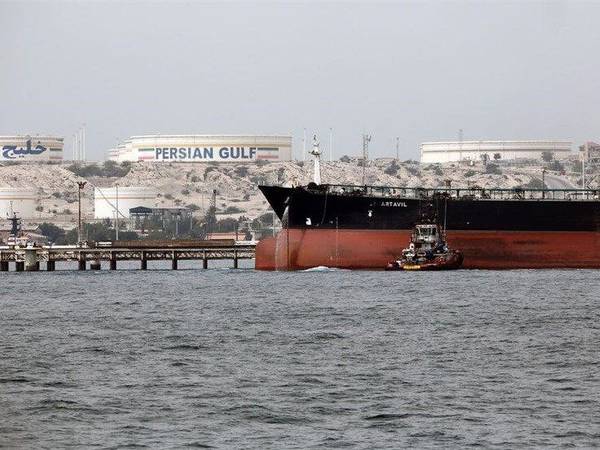More reports from industry sources confirm that Iran’s oil exports have risen despite US sanctions, as each side tries to build leverage in nuclear talks.
Reuters reported on February 10 that in the past two months daily shipments have surpassed one million barrels a day, the highest since May 2019, when the Trump administration cancelled waivers allowing eight countries to import limited quantities of Iranian oil.
Between May 2019 and late 2020, Iran’s clandestine oil exports hovered around 200,000 bpd, or 10 percent of its sales before Donald Trump withdrew from the Iran nuclear agreement, JCPOA, and imposed sanctions.
However, around the time of US presidential elections in the fall of 2020, reports emerged that Iran had increased shipments to more than half a million barrels per day.
This coincided with the time when candidate Joe Biden announced his decision to reverse Trump’s policy of ‘maximum pressure’ against Iran and start negotiations to revive the JCPOA.
The latest news about higher exports, reported by Reuters quoting industry sources, coincide with the most critical phase of indirect nuclear talks the Biden Administration started with Iran more than 10 months ago. The talks held in Vienna involve all the signatories of the JCPOA, including China that is widely believed to be the biggest customer of Iran’s illicit exports.
The Chinese government that mostly abided by the sanctions, increasingly shows defiance to the Biden Administration. A spokesman responded to questions about its oil imports by Reuters, implicitly confirming and challenging the sanctions.
The "international community, including China, has been conducting normal cooperation with Iran under the global legal framework, which are both reasonable and legitimate. They deserve respect and safeguard," the spokesperson's office of China's Foreign Ministry said.
Tehran clings to these sort positions by China and Russia in order to demand more in Vienna, and Iranian hardliners tell domestic audiences that Tehran is in a strong position and does need to compromise.
Saeed Jalili a former nuclear negotiator and an opponent of the JCPOA tweeted on February 8, before the latest reports, “They were saying that Iran’s oil exports should reach zero, while after three years we are selling 1.2 million barrels pd…and this volume is increasing.”
This is a sign of how more oil exports strengthen the hand of hardliners who oppose any compromise with the United States and push for expansion of the nuclear program.
In another tweet, Jalili posted a video of a speech to supporters of the Iranian regime, in which he says the US policy of pressuring Iran has failed and uses a clip from the State Department spokesperson, Ned Price declaring the sanctions policy as an utter failure, to prove to the public that there is no fear and Iran should stand tall.
American proponents of a tough policy toward Iran accuse the administration of abandoning sanctions enforcement amid nuclear talks and allowing Iran to increase oil exports, which could harm their own leverage in Vienna.
